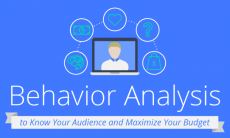It wasn’t that long ago that our digital behavior and presence was something completely strange and unwelcomed by employers. Organizations used to lock access to the Internet, then to social media and any other kind of possible distraction. The Internet police state was patrolling in full force. Then smartphones came along and companies lost complete control over their employees Internet behavior. In addition to that our presence on the Internet became a kind of a reference point. Recruiters wanted to know more, to understand more about their future choices- like a game where everybody tries to find out more about firms but also firms try to learn about people and scout professionals by following or identifying who is what, says what, does what.
My generation’s workforce is different. We do things in a completely different way. We are 100% dependent on search engines, ours is a connected and wired approach to doing things, learning, and delivering. Long tasks seem much more boring than ever, long-term plans completely uninteresting. My workforce looks for an environment to satisfy a thirst for speedy knowledge, ambitious projects and seamless wired decision-making. Many organizations do not seem able to understand this.
There are exceptions, such as Google, but the majority stand on forms and norms belonging to the previous century. Norms not designed to serve an information thirsty workforce, fully digitalized and addicted to social networks. Many working environments remain focused on isolating people instead of mixing them, taking advantage of a new kind of talent to collaborate with, operating in an interrupt-driven mode to find the right information, and to easily apply a crowd-sourced approach of problem solving. My generation doesn’t know much and doesn’t care much about sealed and well-hidden knowledge. However, we will easily trade off old world privileges for access to new, fresh, exciting big data, and tools that will enable us to make the difference.
Pete Motersenn says, “This is the set of data relating to a person’s deepest held beliefs, core values, and personality. It’s what makes a person unique in the world, just as the social graph helps to show what makes her similar to others. The data set is under-developed at the moment, and it’s quite difficult to design for, even conceptually.”
Given that psychology still struggles to explain exactly how our personal identities function, it’s not surprising that documenting such information in a computable form is slow to emerge. There are early indicators that this will change, however. For example, Proust.com, a relatively new (and struggling) social-networking service, asks users to document intimate details of their lives and their beliefs based on the idea of the famed Proust Questionnaire. Yes I know what you’re probably thinking, “But that is just a bit too creepy and invasive.” If you think that way, it is only because you do not yet see the value in that sort of behavior. And that is exactly what sets my generation apart – we do!






